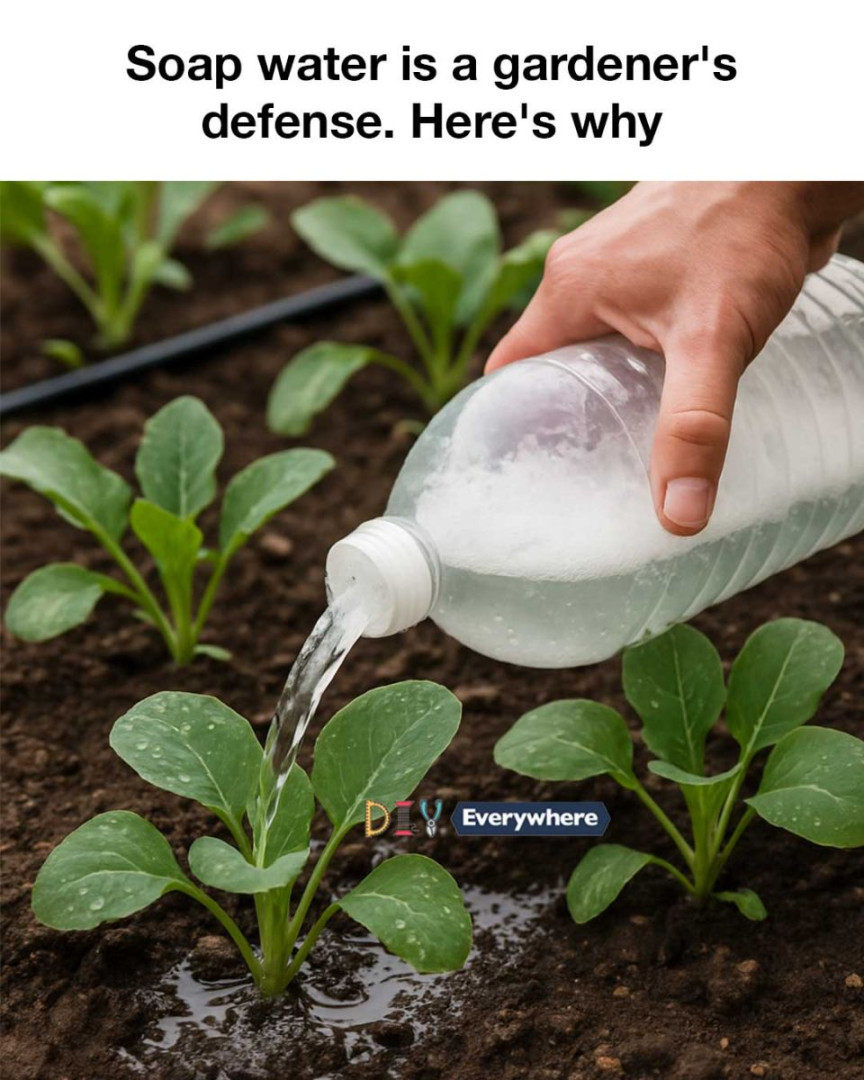ADVERTISEMENT

ADVERTISEMENT
Soap water is a gardener’s defense. Here’s why
Top 12 Viral Tips for Using Soap Water in Gardening
To maximize the benefits of soap water, gardeners can follow these viral tips that have been shared and tested by gardening communities worldwide.
Tip 1: Creating the Perfect Soap Water Solution
Mix 1 tablespoon of liquid soap (like castile or dish soap without degreasers) with 1 quart of water. This concentration breaks down the protective outer layer (cuticle) of soft-bodied insects, leading to dehydration and death, while remaining gentle on plant tissue when used correctly.
Tip 2: Targeting Aphids with Soap Water
Aphids have soft, waxy exoskeletons that are easily disrupted by the fatty acids in soap. Spray the soap water directly onto colonies, focusing on leaf undersides where aphids cluster. The soap penetrates their outer layer, causing cell collapse and suffocation.
Tip 3: Combating Spider Mites Effectively
Spider mites thrive in hot, dry environments and reproduce rapidly. Soap water disrupts their webbing and egg-laying surfaces while dissolving their protective cuticle. Regular spraying interrupts their breeding cycle and prevents outbreaks.
Tip 4: Soap Water for Fungal Control
Though not a fungicide, soap water can help physically dislodge fungal spores from plant surfaces. The surfactant action helps wash away early-stage mildew or mold, making it harder for spores to establish colonies, especially when combined with proper airflow and sunlight.
Tip 5: Using Soap Water on Edible Plants
Soap water is generally safe on fruits and vegetables, but always rinse thoroughly before eating. The soap loosens dirt and pests but leaves a residue that can affect flavor or cause mild digestive issues if not washed off.
Tip 6: Enhancing Soil Health with Soap Water
When used occasionally, soap water can help break up compacted soil due to its surfactant properties. This temporarily reduces surface tension, improving water penetration and oxygen flow. However, excessive use can harm beneficial microbes, so use sparingly.
Tip 7: Soap Water for Weed Management
Soap weakens the waxy protective layer on young weed leaves, making them more vulnerable to dehydration and physical removal. It’s not a standalone herbicide but softens up weeds for easier pulling or combo treatment with vinegar or mulch.
Tip 8: Protecting Beneficial Insects
To avoid harming pollinators and helpful predators like ladybugs, spray only where pests are visible and avoid flowering parts of plants. Timing and targeting prevent collateral damage to the garden’s natural pest control allies.
Tip 9: Frequency and Timing of Application
Apply soap water once weekly or as needed during infestations. Early morning or late afternoon is best to prevent soap-sun interaction that can scorch leaves. Monitor plants for stress to adjust frequency or concentration.
ADVERTISEMENT
ADVERTISEMENT
